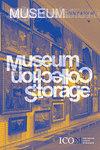The Empty Museum: A Southeast Asian Perspective
IF 0.4
4区 艺术学
0 ART
引用次数: 0
Abstract
Abstract We now regard the COVID-19 pandemic as a disaster like no other caught as we were, by the lack of foresight into its impacts on our lives and our work. With the creative and tourism industries most affected, museums were forced to reinvent their management strategies. In the context of Southeast Asia, the most immediate shock was the absence of visitors around mid-March 2020 when museums were forced to close and only a handful of staff were allowed to report for work to curb a silent and deadly disease from further spreading. From conversations I have had with colleagues in the region through email and messenger, I realised that it took us some time to adapt to this new emergency situation. Our Disaster Risk Preparedness programmes focused on anticipating shorter, more dramatic events such as fire, flood, and civil strife. The shift from physical programmes to digital ones was difficult for many of us who did not consider the online format as effective as those public programmes we present in our galleries and activity centres. This article attempts to give an overview of Southeast Asian museum managers’ perspectives from conversations I had with them between March 2020 and October 2021, when most Southeast Asian museums were opening tentatively. Bearing in mind the impacts on our staff, we discussed how the pandemic might determine how we run our facilities and organisations, and the potential relevance of this perspective on an international scale.空荡荡的博物馆:东南亚视角
摘要我们现在认为新冠肺炎大流行是一场前所未有的灾难,因为我们对其对我们的生活和工作的影响缺乏远见。由于创意和旅游业受到的影响最大,博物馆被迫重新制定管理策略。在东南亚,最直接的冲击是2020年3月中旬左右游客的缺席,当时博物馆被迫关闭,只有少数工作人员被允许报到,以遏制一种无声的致命疾病的进一步传播。从我通过电子邮件和信使与该地区同事的交谈中,我意识到我们花了一些时间来适应这种新的紧急情况。我们的灾害风险防范计划侧重于预测更短、更戏剧性的事件,如火灾、洪水和内乱。对于我们中的许多人来说,从实体节目向数字节目的转变是困难的,他们认为在线形式不如我们在画廊和活动中心展示的公共节目有效。本文试图通过我在2020年3月至2021年10月期间与东南亚博物馆管理者的对话,概述他们的观点,当时大多数东南亚博物馆都在暂定开放。考虑到对我们员工的影响,我们讨论了疫情如何决定我们如何运营我们的设施和组织,以及这一观点在国际范围内的潜在相关性。
本文章由计算机程序翻译,如有差异,请以英文原文为准。
求助全文
约1分钟内获得全文
求助全文
来源期刊

MUSEUM INTERNATIONAL
ART-
CiteScore
0.60
自引率
0.00%
发文量
0
期刊介绍:
In its new revised form Museum International is a forum for intellectually rigorous discussion of the ethics and practices of museums and heritage organizations. The journal aims to foster dialogue between research in the social sciences and political decision-making in a changing cultural environment. International in scope and cross-disciplinary in approach Museum International brings social-scientific information and methodology to debates around museums and heritage, and offers recommendations on national and international cultural policies.
 求助内容:
求助内容: 应助结果提醒方式:
应助结果提醒方式:


